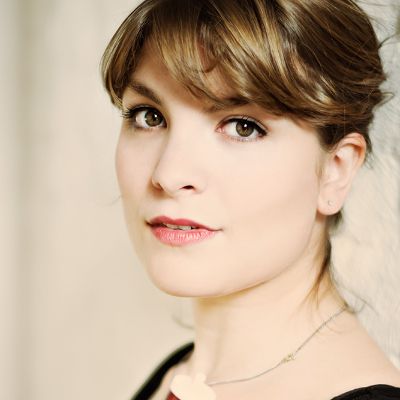
Kristen Huebner
Showing 18 of 18 articles
Amsterdam
04 Jun 2013
A hugely entertaining Meistersinger from The Netherlands Opera
Amsterdam
18 May 2013
Plenty of surprises: Three world premières in Amsterdam
Amsterdam
30 Sep 2012
Helsinki Baroque Orchestra brings the Concertgebouw to life
Utrecht
25 Apr 2013
The King's Consort delights Dutch audience with works from Henry Purcell's English court
Utrecht
03 Apr 2013
Rameau for two harpsichords: Skip Sempé and Pierre Hantaï in Utrecht's Geertekerk
Amsterdam
09 Feb 2013
The Netherlands Opera's daunting William Tell shines light on its massive talents
Amersfoort
06 Feb 2013
BarokOpera Amsterdam premières a hilarious romp through history with Henry Purcell
The Hague
26 Jan 2013
Les Vents Atlantiques shines in a riveting performance of baroque symphonic works
Utrecht
19 Jan 2013
Amandine Beyer leads a musical journey with the solo violin works of J.S. Bach
Utrecht
11 Jan 2013
Holland Baroque Society shows its true colors with works by Fux and Bach
Utrecht
15 Dec 2012
Amsterdam Baroque Orchestra shines in the Christmas Oratorio
Amsterdam
01 Dec 2012
Masaaki Suzuki leads Radio Kamer Philharmonic through Sturm und Drang
Utrecht
27 Nov 2012
Suonar Cantando brings a taste of old Venice to the Netherlands
Utrecht
15 Nov 2012
The Brodsky Quartet show their true musical colors at Utrecht's Vredenburg
Amsterdam
13 Oct 2012
Frans Brüggen and the Orchestra of the Eighteenth Century in Amsterdam
Amsterdam
30 Sep 2012
Combattimento Consort Amsterdam performs Handel
Utrecht
03 Oct 2012
Shuann Chai mesmerizes with Beethoven piano sonatas in Utrecht
Utrecht
02 Sep 2012
From Bach to Buxtehude: Oude Muziek Festival bridges the generation gap

